Upgrade Your Water Heating System Today
Installing a new water heater is a significant upgrade that can improve energy efficiency and provide reliable hot water for daily needs. According to industry data, replacing an outdated water heater can reduce energy bills by up to 20%. Proper installation ensures optimal performance and safety, minimizing the risk of leaks or malfunctions. The process typically involves assessing the existing setup, selecting the appropriate unit, and ensuring proper connections and venting. With advancements in technology, modern water heaters offer longer lifespans and better efficiency. Professional installation can also help in complying with local building codes and warranty requirements. Regular maintenance and timely replacement contribute to consistent hot water supply and energy savings over time. Choosing a qualified installer guarantees that the system operates safely and efficiently for years to come.

A professional technician installing a new water heater in a residential setting.

Close-up of a technician connecting pipes to a modern water heater.

Inspection of the installed water heater to ensure proper function.
| Benefit | Description |
|---|---|
| Energy Efficiency | New water heaters are designed to use less energy, reducing utility costs. |
| Reliability | Upgrading ensures consistent hot water supply without frequent breakdowns. |
| Safety | Proper installation minimizes risks such as leaks or electrical issues. |
| Warranty Coverage | New units often come with manufacturer warranties for peace of mind. |
| Enhanced Performance | Modern systems provide faster heating and better temperature control. |
| Long-Term Savings | Initial investment can lead to lower energy bills over time. |
| Compliance | Installation meets current building codes and standards. |
| Environmental Benefits | More efficient units reduce energy consumption. |
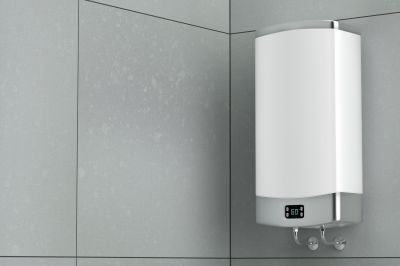
A sleek, energy-efficient tank-style water heater.
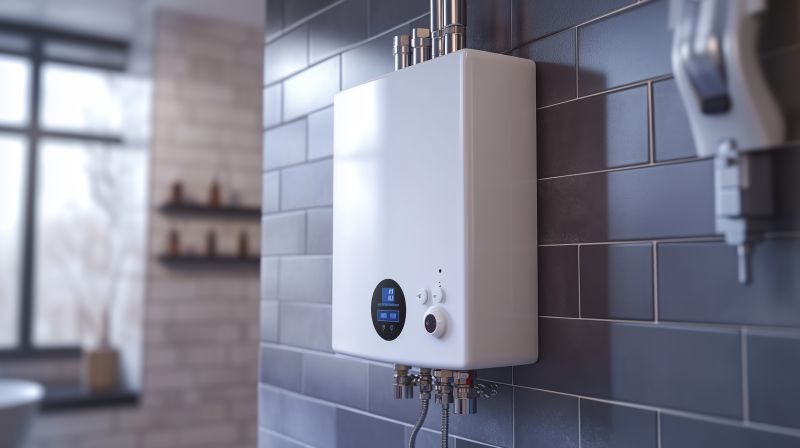
Compact, on-demand water heater installed in a utility closet.
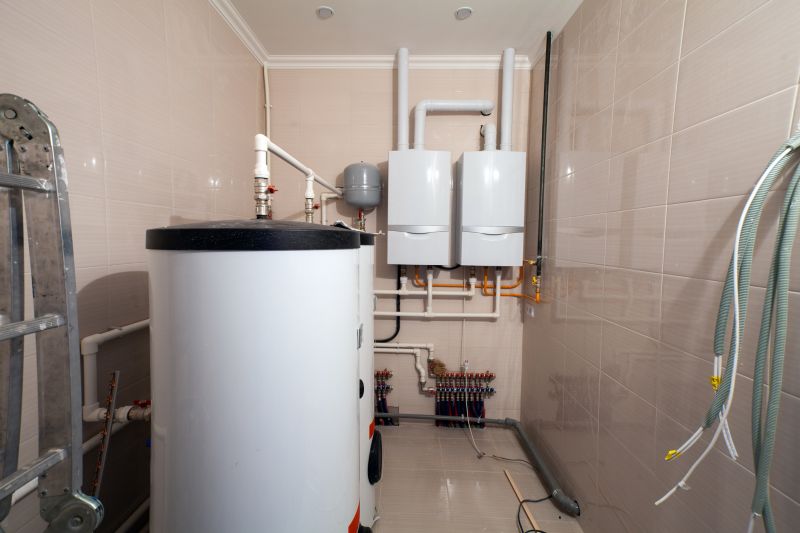
High-efficiency model with advanced insulation.
The process of installing a new water heater involves several key steps to ensure optimal performance and safety. First, the existing unit is disconnected and removed, taking care to shut off utilities and drain the system. Next, the new water heater is positioned in the designated space, with connections made to the water supply lines and electrical or gas sources. Proper venting is installed if necessary, especially for gas models. During installation, the technician verifies all connections for leaks and correct operation. Once everything is secured and checked, the system is filled, and the temperature settings are adjusted. A final inspection ensures compliance with safety standards and manufacturer guidelines. This systematic approach guarantees that the new water heater functions efficiently and safely from the outset.

Technician connecting a tankless unit to existing plumbing.
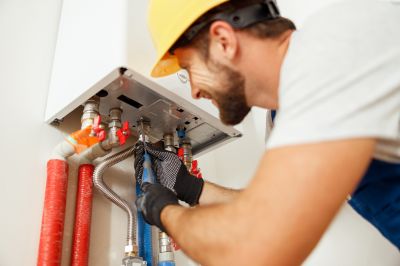
Close-up of pipe fittings being secured to a new water heater.
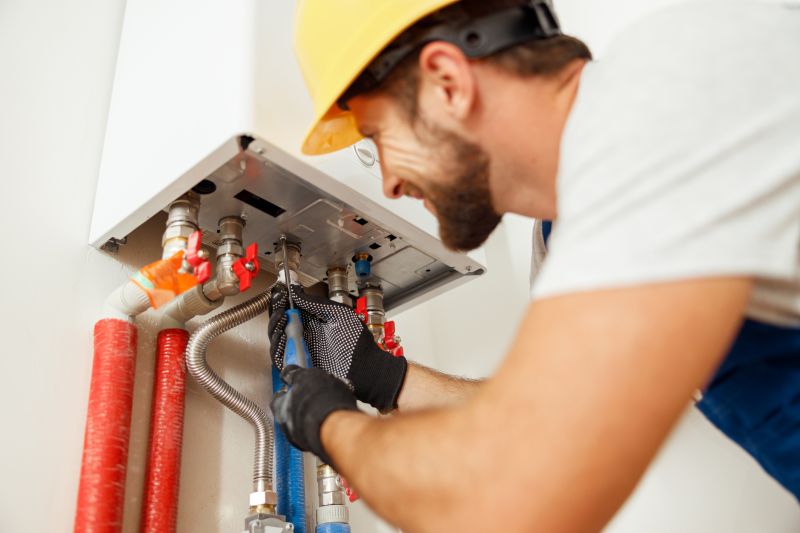
Technician performing a final test on the installed water heater.
Hiring a professional for water heater installation ensures the process is completed correctly and efficiently. Experienced technicians understand the complexities of different systems, whether tank or tankless models, and are familiar with local building codes. Proper installation reduces the risk of leaks, electrical issues, or improper venting, which can cause safety hazards. Professionals also have the necessary tools and expertise to handle any unforeseen challenges during installation. Their knowledge helps in selecting the right unit for specific household needs, optimizing performance and energy savings. Additionally, professional installation often includes thorough testing and inspection, providing peace of mind that the system operates safely and reliably. Entrusting this task to qualified installers can prevent costly repairs and extend the lifespan of the water heater.
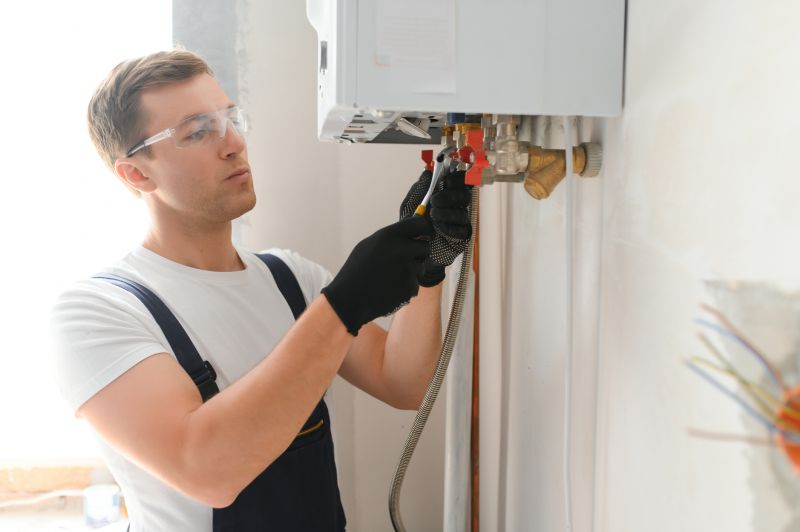
Technician inspecting a newly installed water heater.
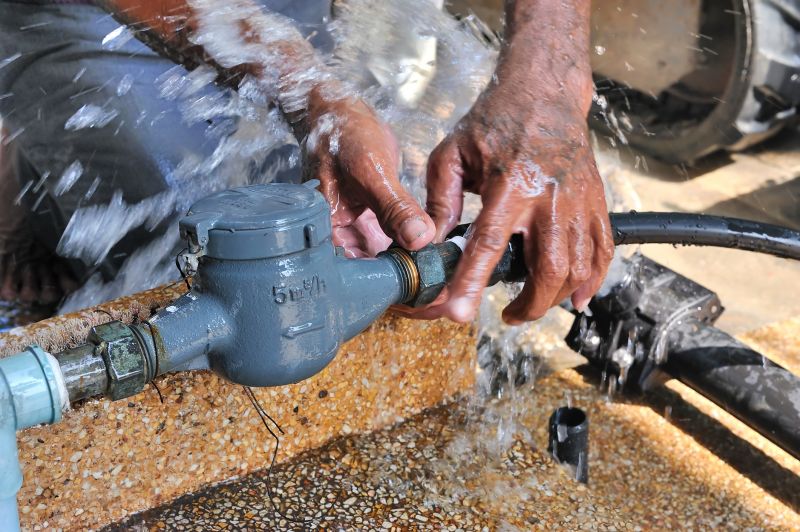
Expert connecting pipes to ensure leak-free operation.
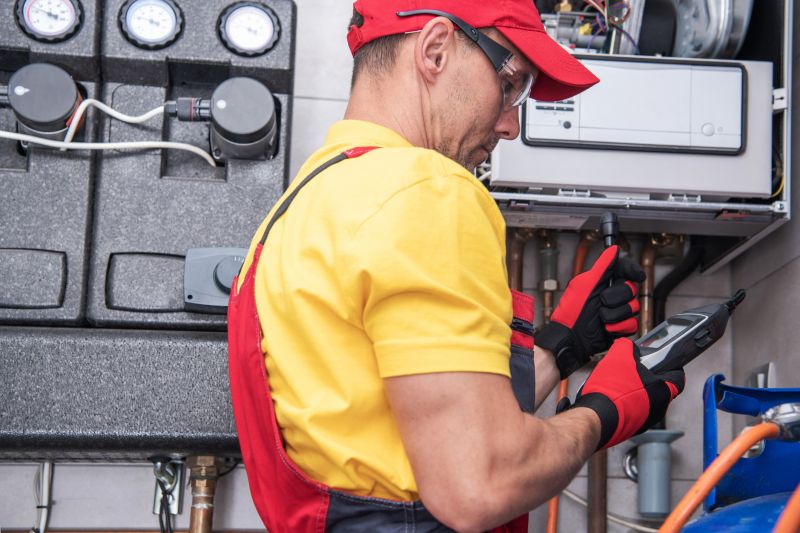
Technician verifying the safety and function of the new unit.
To ensure the best results and safety, it is advisable to hire a professional for water heater installation. Skilled installers have the experience to handle various system types and complexities, ensuring proper setup from the start. They are familiar with local codes and standards, which helps in avoiding potential violations or issues during inspections. Proper installation minimizes risks such as leaks, electrical faults, or improper venting that could lead to safety hazards. Additionally, professional installers can provide valuable advice on selecting the most suitable water heater for specific household needs, maximizing efficiency and lifespan. Their expertise also guarantees thorough testing and calibration, which helps in preventing future problems. Choosing a qualified installer ultimately leads to a more reliable, safe, and efficient hot water system.

A modern, energy-efficient water heater ready for installation.
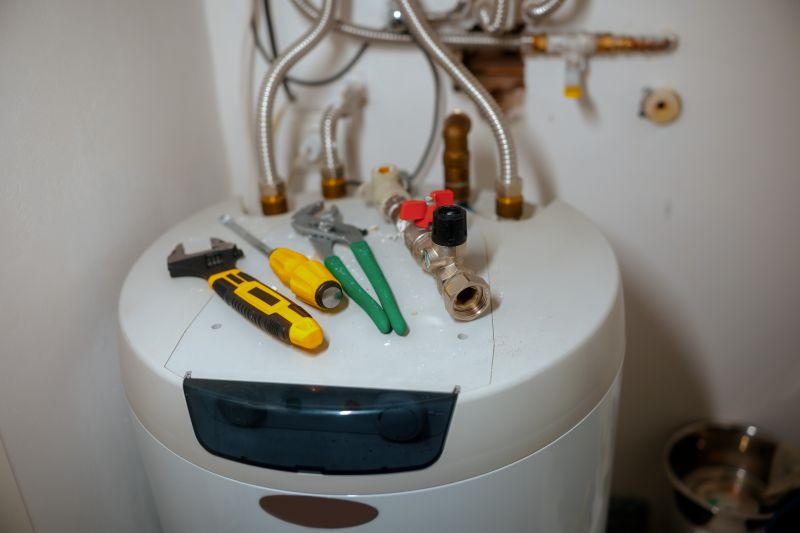
Tools and components used by professionals during installation.
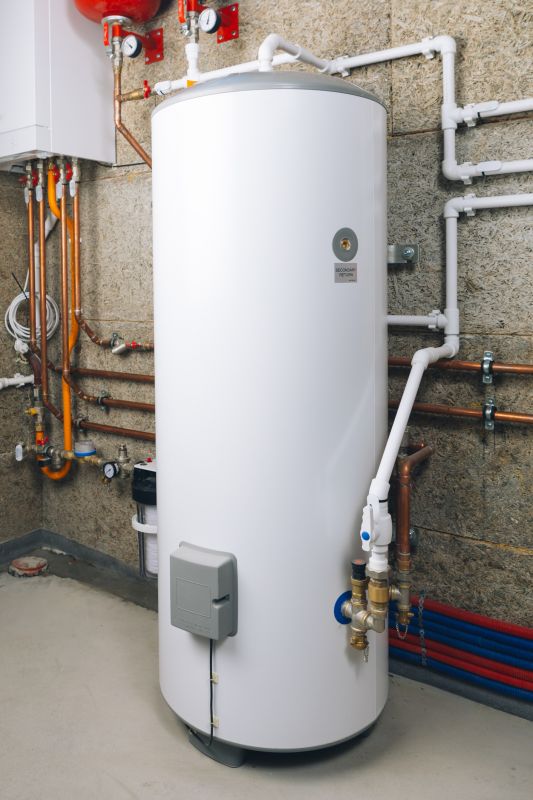
A fully installed water heater in a residential setting.
Interested in upgrading to a new water heater? Contact to receive a detailed quote for professional installation services. A qualified technician can assess your needs, recommend the best system, and ensure proper setup for optimal performance and safety. Fill out the contact form today to get started on enhancing your home's hot water system with expert assistance.



